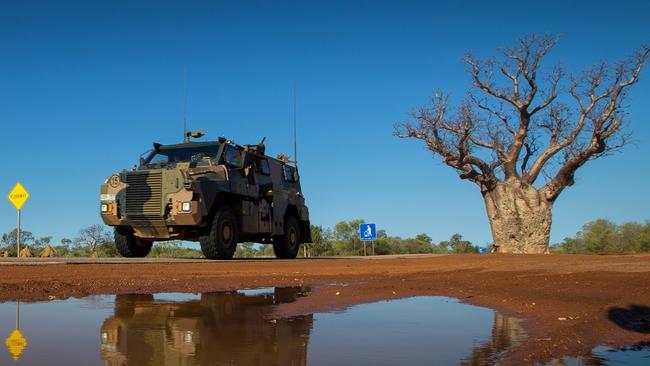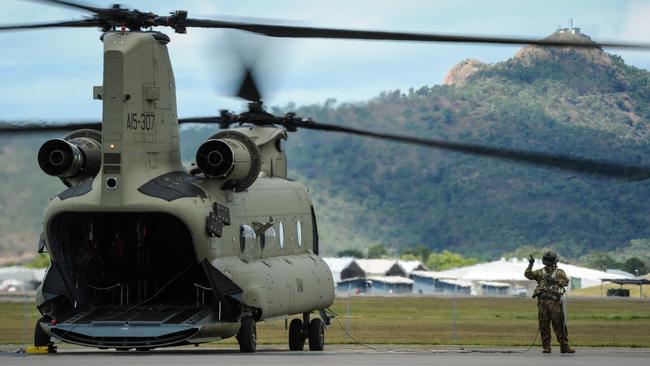
WHILE the Gold Coast is known for its tourism and development industries, few would know the city is also one of Australia’s largest manufacturers of defence materials.
Factories in Molendinar, Arundel and Burleigh are churning out body armour, missile packing, bullet-resistant glass, laser-guidance technology and armoured vehicles for military and police forces around the world.
Arundel-based Craig International Ballistics is Australia’s largest armour manufacturer.
It moved into new premises at the end of last year after securing a $49 million contract to supply 20,000 sets of body armour to the Australian Army.
It builds armour for planes, boats and land vehicles as well as anti-attack and bullet-resistant glass and is planning to expand its export market further after success in New Zealand and Papua New Guinea.

CEO James Craig is unable to talk about much of the projects his staff of 30 work on – and their factory is off-limits to outsiders.
“I can’t say too much about what we do because we have a number of government contracts,” he said.
“Part of our industry is quite secretive – a lot of our customers don’t like being mentioned.
“We’ve had rapid growth.
“Our products are very good, it’s just a matter of getting out there and marketing ourselves well.”
Military fuel tankers in Iraq, Australian Army helicopters and personnel carriers in the Middle East and across South-East Asia all have something in common: a spray-on blast-protective treatment that comes from an unassuming workshop in Molendinar.
Rhino Linings makes polyurethane and polyuria coatings, which are used to prevent bullets from destroying fuel tankers in warzones and for protecting military vehicles including Aussie Bushmasters and military ambulances.
Managing director Denis Baker said the company’s products were used to coat the interior of the army’s Chinook helicopters and the outside of the aircraft’s rear doors, to protect them from damage when they were lowered to the ground.
“We do unusual things that people probably don’t know we do,” he said.
“We have also completed special encapsulation of armour for some New Zealand Air Force craft.”
When defence or police forces need to ship something sensitive, an Australia Post pack won’t do the job – so they call in Burleigh-based business P.J. Bowers.
P.J. Bowers manufactures missile packaging and other products from foam for “tool control” used by defence organisations as well as major airlines and maritime operations.
When you’re operating a million-dollar piece of equipment and lives are at stake, an errant hand tool left unsecured inside a turbine could be a deadly weapon.
“We do specialised packing components for helicopters and some for vehicles,” managing director Peter Bowers said.
“When the defence forces need it, for instance if they have to ship something to the States, they would need specialised packaging.
“I’m not at liberty to say anything about that.
“Foam is a pretty big industry – people think about it as seat cushions, but that’s far removed from what we’re doing.”
Staff at Laser Dyne export 99 per cent of what they make in Molendinar to the US and Europe, but sometimes they see it come back into Australia as components of much bigger products.
They create hi-tech laser rangefinders, video recorders and rugged screens designed to be fitted to large-scale warcraft.
“We manufacture everything right here on the Gold Coast,” says chief engineer Mick Walsh.
“A lot of the time we never know where the finished product ends up, but typically it will end up in law enforcement situations like police helicopters.
“Our rangefinders end up being hand-held systems used for surveillance as well as naval or land-based systems for aircraft tracking.
“Beyond that, it’s anyone’s guess.”
Minister for State Development Anthony Lynham, joined army contractors and defence buyers at Adelaide’s Land Forces exhibition last week.
As the mining boom becomes more of a bust, the Queensland Government sees defence as a different boom altogether.
“Queensland businesses won $3.8 billion worth of new national defence contracts in 2015-16,” Dr Lynham said.

Add your comment to this story
To join the conversation, please log in. Don't have an account? Register
Join the conversation, you are commenting as Logout
‘Gaslighting’: Weight loss clients fume over ‘non-existent’ service
A flailing weight loss company has come under fresh fire from clients who claim they did not got what they paid for. Read what they said.
‘Intense’: Inside the high-stakes battle for historic Coast property
A big-money battle has played out over a property on one of the Gold Coast’s busiest arterial roads which was once owned by a famous figure. FIND OUT MORE